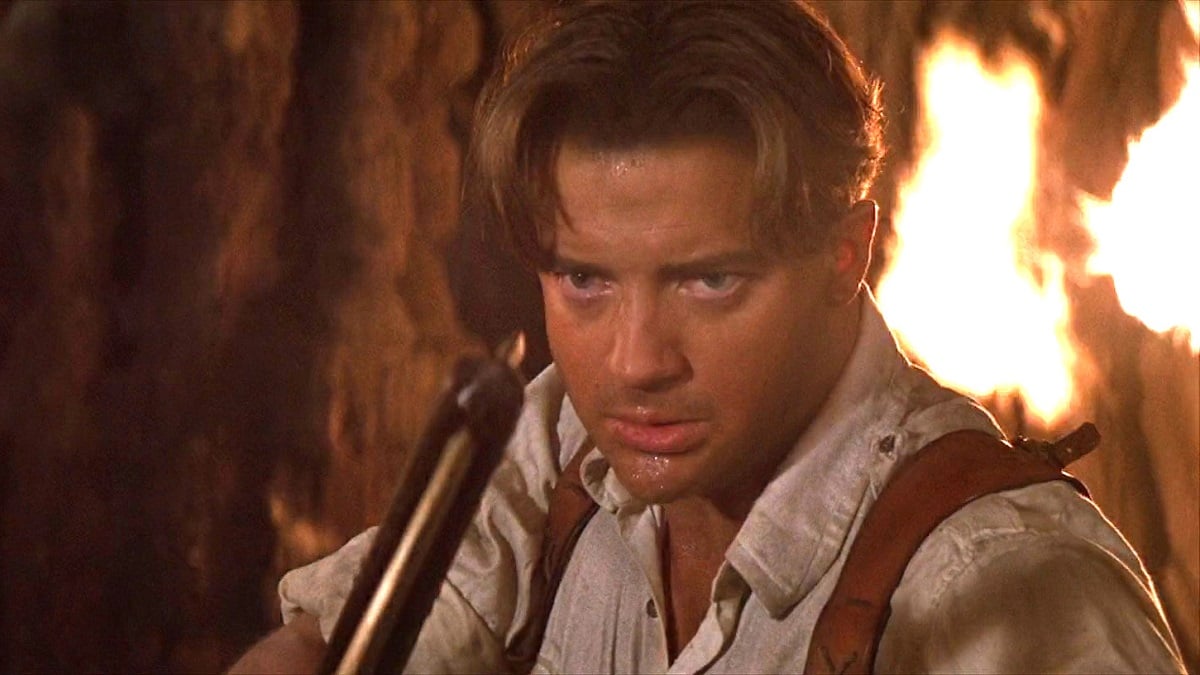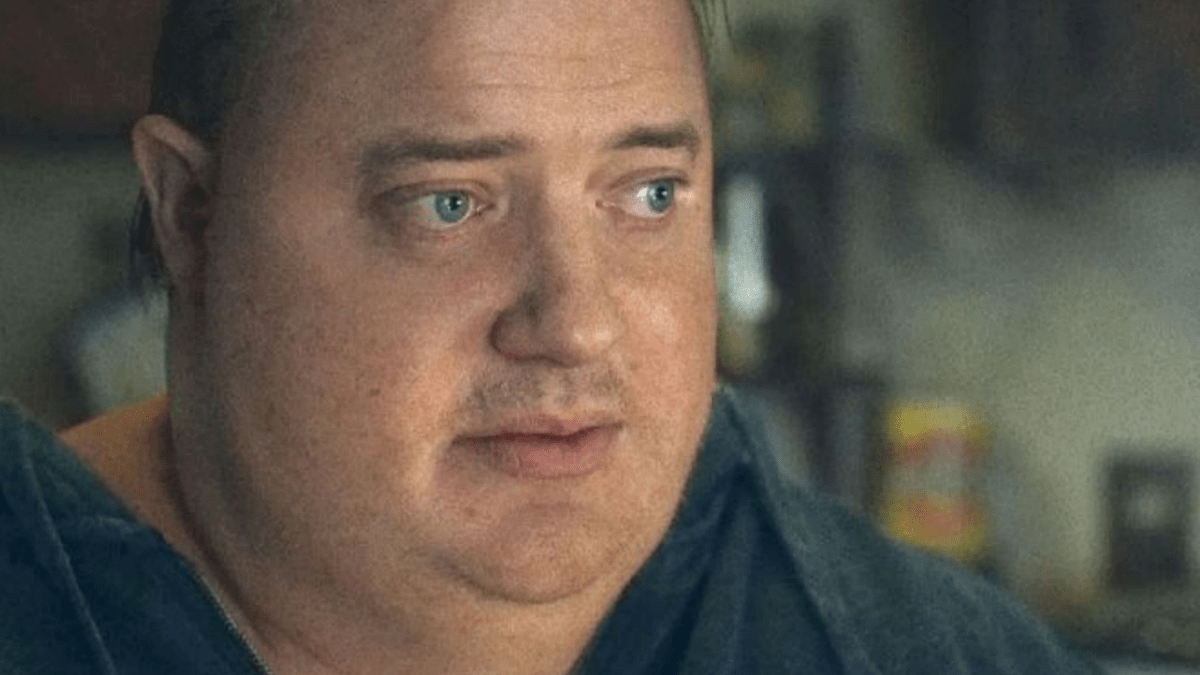Brendan Fraser‘s performance as Charlie, an English professor working to mend his broken relationship with his estranged daughter before his death, in Darren Aronofsky’s The Whale has received universal acclaim and has garnered him much-deserved recognition for his talent, most notably in the form of his first Oscar nomination.
For the film, Fraser collaborated with the Obesity Action Coalition to portray obesity onscreen with the complexity and humanity it deserves. Per an interview with Deadline, Fraser shared he practiced with a movement coach to change his center of gravity and wore a five-point harness suit while filming emotionally charged scenes as Charlie.
“When this film was over, I had an unexpected reaction to taking off Charlie’s body the last time; I was really emotionally moved. I felt a strange sense of survivor’s guilt because I could take him off at the end of the day, and I’ve met people who live like that until they didn’t live anymore.”
It wasn’t just the physical aspect that had to be mastered; Fraser brought Charlie to life, basing him off of kind mentors he’s had throughout his life.
“Charlie has a secret superpower. He is able to bring out the good in others even when they can’t see that in themselves or they feel that they’re irredeemable.”

There was a time when Fraser was one of Hollywood’s biggest stars. For about a decade, Fraser lit up screens in some of the most popular films of the 1990s, like Encino Man, School Ties, and George of the Jungle, carving out an accidental niche as young men who found themselves in new worlds. He became an integral part of many childhoods when he was cast as the cocky-yet-lovable adventurer Rick O’Connell in The Mummy, a role he’d reprise in two sequels. In 2002, Fraser proved he had the ability to succeed in more serious fare in the critically acclaimed The Quiet American.
Then suddenly, he was gone. Fraser had the kind of career in one decade many actors dream of their whole lives, and with the filmography he was building, there was no apparent reason for the sudden stop to his career trajectory. For many, it seemed Fraser just disappeared without a trace one day. Other than the occasional The Mummy rewatch, he hardly crossed the minds of his previous fans.
That perceived absence is a big part of why his comeback hits us so strongly. If there’s anything Hollywood loves, it’s a good comeback, and Fraser’s is more than overdue. At last year’s Venice film festival, he received a six-minute standing ovation from industry peers and Best Actor awards from the Screen Actor’s Guild and Critics Choice Awards (where his moving acceptance speech went viral). If Fraser takes home the Oscar, a likely outcome based on how he’s fared this awards season, it will not only preserve his legacy as one of the greatest actors in the industry but also recognize the hell he went through to get here.
For Fraser, The Whale is not a comeback. Despite taking a hiatus due to a difficult divorce and undergoing several surgeries from injuries sustained during his early films, he did not leave Hollywood — if anything, Hollywood left him. In a viral interview with GQ, Fraser opened up about why he had disappeared from the spotlight, initially chalking it up to working himself past his limit.
“…I felt like the horse from Animal Farm, whose job it was to work and work and work. Orwell wrote a character who was, I think, the proletariat. He worked for the good of the whole, he didn’t ask questions, he didn’t make trouble until it killed him. I don’t know if I’ve been sent to the glue factory, but I’ve felt like I’ve had to rebuild shit that I’ve built that got knocked down and do it again for the good of everyone whether it hurts you or not.”
Then, he dropped a bombshell. He alleged then-president of the Hollywood Foreign Press Association Phillip Berk groped and assaulted him at a work luncheon in 2003. Fraser debated making the incident public but chose not to for fear of damaging his career, “I didn’t want to contend with how that made me feel or it becoming part of my narrative.” After an “apology” from Berk that essentially amounted to “I’m sorry you’re offended,” Fraser fell into depression and work “withered on the vine for me. In my mind, at least, something had been taken away from me.”
Berk never admitted to any wrongdoing (despite downplaying it as a joke in his 2014 memoir) but was later removed from the HFPA after calling the Black Lives Matter movement a “racist hate movement” in an email to the entire organization.
Despite tragedies and setbacks in his personal and professional life, Fraser persevered. He turned his attention to television and roles in shows like Trust and Doom Patrol. Those parts revived his strong fanbase, and it allowed him to work with filmmakers like Steven Soderbergh and Aronofsky.
If Fraser wins this Oscar, it will not only be a celebration of his career spanning three decades but a testament to perseverance. In a followup with GQ last year, the actor spoke about wanting to prove he’s more than just a comeback, and that he wants to be evaluated based on his work.
“My hope is that I can be recognized at this time in my life and career for my professional efforts rather than the trope of the comeback kid as being a standard in culture, sports, coming from behind, being written off and then coming back.”
There’s no doubt Fraser’s performance as Charlie in The Whale deserves an Oscar win. An Academy Award would not only honor his outstanding turn in the Aronofsky film, but it would also recognize his early career highs as well as the struggle he went through to get to the Academy stage. He’s more than proved he’s a talent to be reckoned with. Winning would pave the way for even more roles of the quality Fraser has longed for during his career and earn one of the nicest men in the industry his place in Hollywood history.
Like Charlie teaches his students, there is nothing more liberating than the truth. Fraser is now living his truth, and an Oscar win would be a fitting testament to his perseverance and shows us it’s possible to thrive after tragedy.

